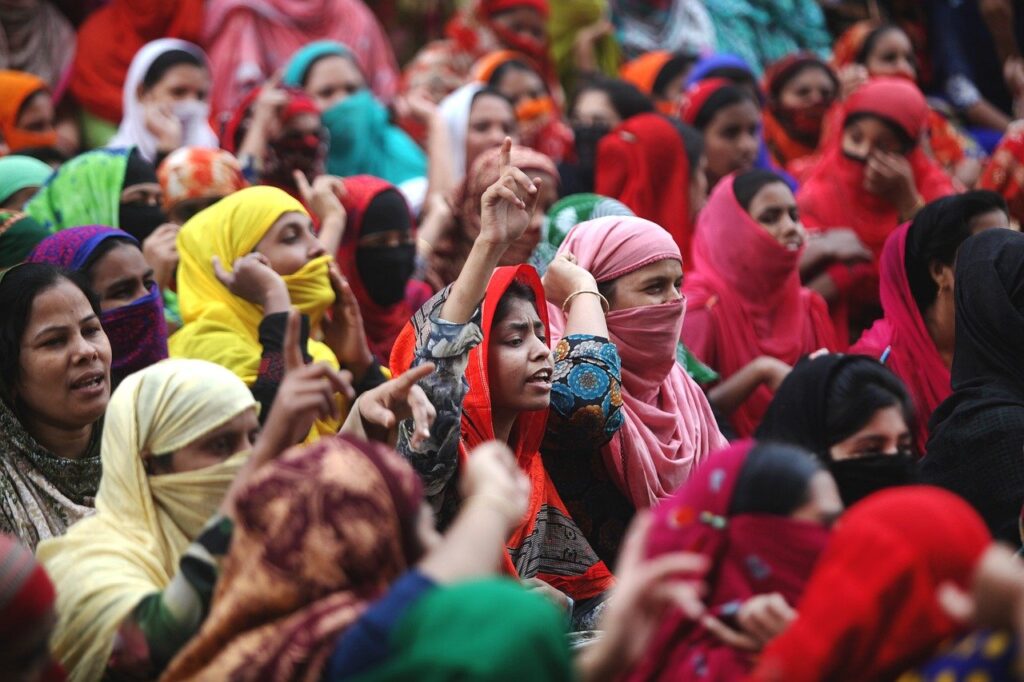September 18, 2021
either/view ⚖️
Protest for a cause
To: either/view subscribers
KNOW YOUR RIGHTS – EDITION 7
Right to Peaceful Protest

Good morning. Picture this: There’s a grove of lush green trees behind your apartment. You and your friends often spend weekends sitting under their shade, and you enjoy watching the birds and insects that live on these trees. On one such day, as you’re taking a walk through this path, you notice a group of men sawing the tree trunks. Upon enquiry, you find out that they’ve been employed by a corporate company and are cutting the trees down to build a storage facility for the company. But this grove of trees is an essential component of your local ecosystem and you want to protect it. What do you do?
You’ve got the fire in you to stand for what’s right, you want to ask your friends and neighbours to support you, but you’re thinking – Am I allowed to oppose this decision?
One hundred per cent, yes!
If you believe that an event, action, situation, or decision can cause harm to any living entity either in the present or the future, you have every right to voice your dissent and try your best to make sure that the concerned individual/institution/government does not go through with their decision.
Article 19 (1) (b) of the Indian Constitution clearly states – ‘all citizens have the right to assemble peacefully and without arms’.
This means you’re free to hold meetings, mobilise a group of supporters, and present your collective voice against any wrongdoing. So if your friends and neighbours decide to stand with you and speak against the felling of the trees, nobody can stop you from doing so.
The law also guarantees that if the need arises, a peaceful gathering such as this will be protected by officers of the law and people can continue to stand for their cause without facing any legal consequences. Remember though, that you cannot wield a weapon or take the violent route. You cannot vandalize public property or harm a fellow human’s life under the cloak of activism.
There’s also the matter of disrupting daily life, something you definitely must be cautious of because it can very well get you in trouble. If an individual or a large mob gathered in a public place cause any hindrance to the lives of the residents or encroach on their freedom, the government can take action against those gathered in support. So if you or your group of protestors end up obstructing vehicular movement on your street or creating any inconvenience for the local residents, it will be considered as an offence. Your efforts to stop the trees from being chopped down would be a complete waste because your actions don’t fall within the legal circumference.
Now comes an important question – how much of this right are you allowed to exercise?
As several legal documents and sources mention, the right to peaceful protest is not absolute. History only reinforces this ambiguity and shows that the freedom attached to it is case-specific. Which means, if at any point during a protest, the government decides that the protestors’ actions go against the law and warrant that certain restrictions need to be put in place, it is free to do so. In such a scenario, you are expected to abide by the rules laid down by the authorities. A similar protest being carried out by another group in a different part of the country may not be subject to these restrictions.
We’ve put down some quick pointers for you to remember when planning a peaceful protest:
- Don’t obstruct a legal process
- Don’t use force or arms or anything that threatens the safety of another life
- Don’t trespass in criminal capacity
- Do not prevent another individual from exercising their legal right or coerce someone to perform an act that they’re not legally bound to do. Simply put, in this context it means that you mustn’t force a person to participate in a protest against their will.
- Ensure that the assembly really is peaceful and harmonious
If you believe in your cause, stand your ground and make a peaceful attempt to prevent a wrong from happening, but always remember to do so within your constitutional rights.

